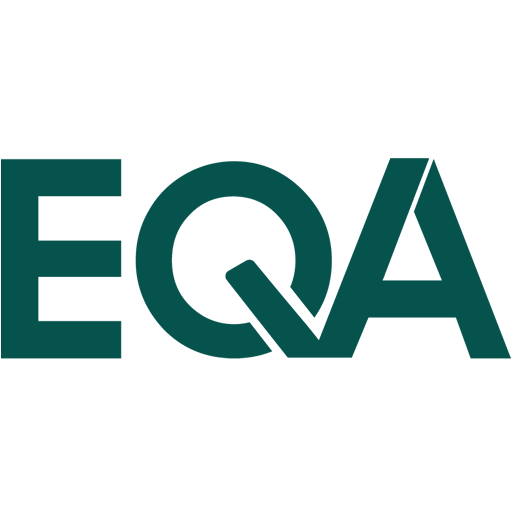
Verification of Greenhouse Gases (GHGs)
Verification of GHG (Greenhouse Gas) emissions originates from the Kyoto Protocol and is currently regulated in Commission Implementing Regulation (EU) 2018/2067 of 19 December 2018 concerning the verification of data and the accreditation of verifiers pursuant to Directive 2003/87/EC of the European Parliament and of the Council.
CO2 Emission Trading
Law 1/2005, of 9 March, establishes the obligation for any installation in which any of the activities are carried out and which generates the emissions specified in Annex I, to have a greenhouse gas emission permit, unless the installation is excluded from the Community scheme in accordance with the provisions of its fourth additional provision.
There are currently a total of 29 activities, which fall into 15 activity groups in relation to verification, included in Commission Implementing Regulation (EU) 2018/2067 of 19 December 2018.
The 4th phase of the ETS (Period 2021-2030), is divided into two sub-phases: 2021-2025 and 2026-2030. Installations wishing to apply must do so in each of these two sub-phases. The free allowances are distributed to companies according to harmonised rules at European level. The documentation must be verified by an accredited entity. Operators applying for free allocation of emission allowances must have a methodological monitoring plan in accordance with European Union regulations for the harmonisation of the free allocation of emission allowances, in accordance with article 5 of Royal Decree 1089/2020 of 9 December.
GHG Verification with EQA
EQA is accredited by ENAC, no. 1/VV028, for the Verification of European Greenhouse Gas Emissions Trading Scheme Reports, in accordance with Implementing Regulation (EU) 2018/2067, concerning the verification of data and the accreditation of verifiers in accordance with Directive 2003/87/EC of the European Parliament and of the Council.
EQA guarantees the accuracy of the verified data by ensuring a transparent and consistent verification process consisting of the following steps:
- Review of the verification contract: purpose, resources, required competences, duration of the process and cost.
- Strategic analysis.
- Risk analysis.
- Preparation of the Verification Plan (Test Plan and Sampling Plan).
- Emission of the Verification Report.
Frequently Asked Questions
Emissions Trading Obligations
Operators of installations affected by Emissions Trading shall:
- Comply with the obligations relating to the monitoring and reporting of greenhouse gas emissions imposed by Directive (EU) 2003/87/EC of the European Parliament and of the Council, in accordance with the principles set out in Articles 5 to 9 of Implementing Regulation (EU) 2018/2066.
- Have a GHG Emission Allowance.
- Monitor greenhouse gas emissions on the basis of a Monitoring Plan approved by the competent authority and in accordance with the provisions of Article 12 of Implementing Regulation (EU) 2018/2066.
- Report their annual emissions, submitting to the Competent Body of each Autonomous Community, Annual Emissions Notification, verified by an accredited verification company, by 28 February of the year following the year of notification.
- Submit significant modifications to the Monitoring Plan to the competent Autonomous Community body, in accordance with the provisions of Article 15 of Implementing Regulation (EU) 2018/2066.
Non-compliance with Emissions Trading
Article 29 of Law 1/2005 sets out the possible infringements that may be committed by stationary installations and Article 30 sets out the consequences of non-compliance (penalties):
- Very serious administrative infringements, examples: carrying out the activity without the mandatory greenhouse gas emission permit, failure to submit the verified annual emissions report, etc.
- Possible sanctions applicable to very serious administrative infringements: fine from 15,001 to 2 million euros, temporary closure (total or partial) of the installations for a maximum period of two years, termination or suspension of the permit for a minimum of one year and a maximum of two years, fine of 100 euros for each tonne of excess emissions not delivered.
- Serious administrative infringements, examples: failure to comply with the obligation to report changes in the identity or address of the operator, failure to comply with the conditions for monitoring emissions established in the permit when such non-compliance leads to alterations in emissions data, etc.
- Possible penalties for serious administrative infringements: fine from 5,001 to 15,000 euros, suspension of permit for a maximum period of one year.
- Minor administrative infringements, examples: failure to comply with the conditions for monitoring emissions set out in the permit where such non-compliance does not result in alterations to emissions data, failure to comply with the rules governing annual verified emissions reports where this does not result in alterations to emissions data, etc.
- Possible sanction for minor administrative infringements: fine of up to 5,000 euros.
More information on Emissions Trading Obligations.
Contact us for more information on GHG Verification
Follow us
Tel. +34 913 078 648